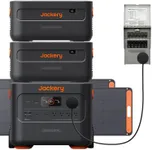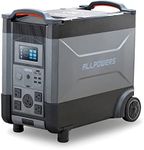Buying Guide for the Best Rv Quiet Portable Generators
Choosing the right RV quiet portable generator can significantly enhance your camping experience by providing reliable power without disturbing the peace. When selecting a generator, it's important to consider several key specifications to ensure it meets your power needs, operates quietly, and is easy to transport. Understanding these specifications will help you make an informed decision and find the best fit for your RV adventures.Power Output (Wattage)Power output, measured in watts, indicates how much electricity the generator can produce. This is crucial because it determines what appliances and devices you can run simultaneously. Generators typically range from 1,000 to 4,000 watts. For light usage, such as charging devices and running small appliances, a generator with 1,000 to 2,000 watts is sufficient. For more demanding needs, like running an air conditioner or multiple appliances, you may need 3,000 to 4,000 watts. Assess your power requirements by listing the wattage of all the devices you plan to use and choose a generator that can handle the total load.
Noise LevelThe noise level of a generator is measured in decibels (dB) and is important for maintaining a peaceful environment. Quiet generators typically operate at 50-60 dB, which is about the noise level of a normal conversation. Generators with noise levels above 70 dB can be disruptive. If you value tranquility, especially in campgrounds with noise restrictions, opt for a generator with a lower dB rating. Consider where and when you'll be using the generator to determine the acceptable noise level for your needs.
Fuel Type and EfficiencyGenerators can run on various fuels, including gasoline, propane, and diesel. Gasoline is widely available but can be less efficient and has a shorter shelf life. Propane is cleaner and has a longer shelf life but may require additional storage space for tanks. Diesel is efficient and has a longer runtime but is typically used in larger, more powerful generators. Consider the availability and convenience of the fuel type, as well as the generator's fuel efficiency, which affects how long it can run on a full tank. Choose a fuel type that aligns with your usage patterns and storage capabilities.
PortabilityPortability is a key factor for RV generators, as you'll need to move and store the unit easily. Look for features like compact size, lightweight design, and built-in handles or wheels. Generators can weigh anywhere from 30 to over 100 pounds. If you plan to move the generator frequently, a lighter model with wheels will be more convenient. Consider your physical ability to lift and transport the generator, as well as the available storage space in your RV.
RuntimeRuntime refers to how long a generator can operate on a full tank of fuel. This is important for planning your power usage and refueling needs. Generators with longer runtimes are more convenient, especially for overnight use or extended periods without refueling. Runtime can vary based on the load, with higher loads reducing the runtime. Look for a generator that offers a balance between fuel capacity and efficiency to meet your typical usage duration. Consider how long you need the generator to run continuously and choose one that can meet those needs without frequent refueling.
Inverter TechnologyInverter generators produce clean and stable power, making them ideal for sensitive electronics like laptops and smartphones. They are also typically quieter and more fuel-efficient than conventional generators. If you plan to power sensitive devices or value quiet operation, an inverter generator is a good choice. Inverter generators are available in various power outputs, so you can find one that meets your specific needs while providing the benefits of clean power and reduced noise.

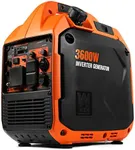
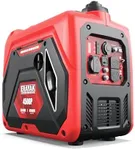
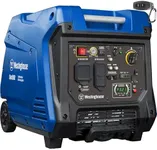
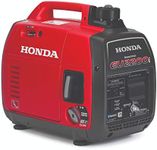
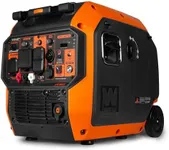
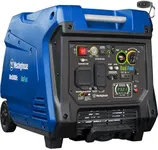
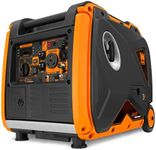
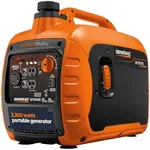

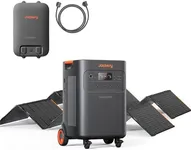

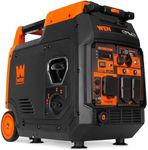

![[Upgraded Version] ALLPOWERS S2000 Portable Power Station 2000W (Peak 4000W) MPPT Solar Generator 1500Wh Backup Battery with 4 AC Outlets for Outdoor Camping RV Emergency Off-Grid](https://images-proxy.bestreviews.guide/RKciUpoEpXP6FG5NDwMBUKV-gKk=/0x150/https://m.media-amazon.com/images/I/51n9OTptdIL._AC_CX679_.jpg)
